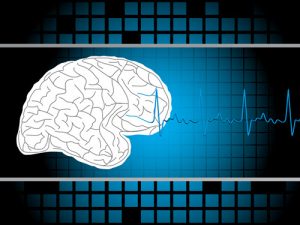 If a person has been dealing with chronic pain for years, they know every moment without pain is a moment to be treasured. While most people have tried various medications with different degrees of success, there are natural ways to reduce or eliminate pain. Follow these helpful tips for a life with less chronic pain.
If a person has been dealing with chronic pain for years, they know every moment without pain is a moment to be treasured. While most people have tried various medications with different degrees of success, there are natural ways to reduce or eliminate pain. Follow these helpful tips for a life with less chronic pain.
Take a Pilates Class
Gentle stretches, such as those done in Pilates, can significantly reduce pain. Lengthening and strengthening the muscles allows the body’s soft tissues to become more hydrated. Much like a kinked garden hose affects the immediate area, it also cuts the water supply to the hose’s other end. By straightening the kinks, moisture is allowed to flow freely to the tissues and nerves, and pain signals to the brain are diminished.
Get Some Sleep
If a person gets fewer than seven hours of sleep per night, they’re taking away the body’s opportunity to naturally heal itself. It’s important to get seven to nine hours of sleep each night, but that number isn’t set in stone. Ideally, a person should get sufficient sleep so they wake up with a refreshed feeling.
Breathe Deeply
When people are stressed, they take shallow, short breaths, which can lead to decreased oxygen and increased carbon dioxide in the blood. Be sure to take deep, long breaths to give plenty of oxygen to the cells and nerves.
Take up a Hobby
Interests and hobbies aren’t just for the retired. In fact, having a hobby can give a person’s life a sense of thoughtfulness and creativity. If someone finds something that sparks their interest, they can increase their natural pain-relieving hormones and, at the least, provide a distraction for a little while.
Be More Mindful
Most people lead busy lives, and they’re constantly inundated with things that need immediate attention. This constant stress can lead to an increased pain response, but there are ways to deal with it. It’s important to take a few minutes each day to rest and take everything in, either by taking a walk or by lying quietly. By being more mindful, a person can teach their brain to adjust pain signals and come to a certain level of acceptance.
Make Some Dietary Changes
Sugar can put a person’s nerves on edge, leading to increased pain levels. Those with chronic pain should try to eliminate sugar as well as processed carbohydrates, instead adopting a plant-based, whole-food diet with lean proteins. The majority of a patient’s dietary intake should be from organic nuts, fruits, vegetables, and unrefined grains.
Have Some Fun
Having fun with other people in a positive, upbeat setting increases the body’s natural pain-relieving hormones and allows a patient to think about something other than his or her pain. If the pain is particularly severe, it can seem like that’s all there is to life. By choosing friends whose love shines brighter than the pain, patients can manage their chronic pain more effectively.
Get Some Aerobic Exercise
Along with Pilates, aerobic exercise can keep a patient’s heart muscle strong and eliminate toxins that cause chronic pain. Start gently and slowly and work up to 30 minutes per day, four or five days per week.
Move Forward
Whether someone has had chronic pain for years or they’ve only recently begun to experience it, education is one of the best ways to alleviate the pain. With that fact in mind, patients should learn about alternative treatments and other natural pain-relief methods. By getting enough exercise, sleep, and healthy food, as well as forming good friendships and becoming more mindful, patients can avoid letting the pain take over their lives.
Try BioFeedback and Brain Treatments
The video below shows how chronic pain was controlled by using unique brain equipment at The Brain Performance Center of Dallas and Irving, Texas.
